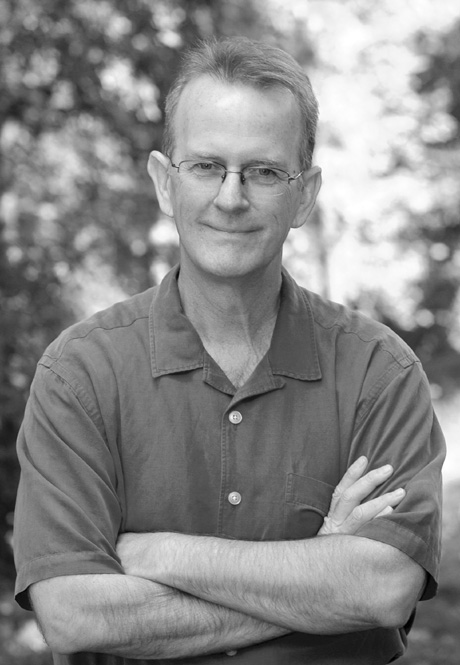One Art
BY PROF. VAROL AKMAN
Mark Jarman (b. 1952)
Aptness and perfection in poems move me as I suppose they move anyone who cares about such things. But I also greatly admire those poems which are not perfect, but nearly perfect, as they render human imperfection or, more precisely, show themselves to be products of human imperfection.
 I think, and I suppose I am not alone in so thinking, that among the covenants God makes with various individuals and groups in the Bible, the most significant is the one between God and Israel at Mount Sinai. Not surprisingly, the text of this covenant is an illustrious ancient code of law: the Ten Commandments (aka the Decalogue).
I think, and I suppose I am not alone in so thinking, that among the covenants God makes with various individuals and groups in the Bible, the most significant is the one between God and Israel at Mount Sinai. Not surprisingly, the text of this covenant is an illustrious ancient code of law: the Ten Commandments (aka the Decalogue).
Between 1980 and 1989, Mark Jarman and fellow poet Robert McDowell published a remarkable magazine named The Reaper. Death - epitomized, as usual, as a hooded old man or a skeleton carrying a scythe (the Grim Reaper) -- was always on the cover of The Reaper, and the magazine lasted for 18 issues. Arguing for verse that was interested in telling the stories of its subjects plainly (narrative poems), the authors explained the stance of The Reaper (their composite persona) as follows:
Most contemporary poets have forgotten [Death]. Navel gazers and mannerists, their time is running out. Their poems, too long even when they are short, full of embarrassing lines that 'context' is supposed to justify, confirm the suspicion that our poets just aren't listening to their language anymore.
The authors' overall message was clear as a whistle: Be genuine and intelligible! Asking for a return to clarification of private gestures in poetry ("The self will always be with us, but it is not all that we have"), The Reaper's non-negotiable stipulations -- in some sense, the Decalogue -- were as follows:
1. Take prosody off the hit list.
2. Stop calling formless writing poetry.
3. Accuracy, at all costs.
4. No emotion without narrative.
5. No more meditating on the meditation.
6. No more poems about poetry.
7. No more irresponsibility of expression.
8. Raze the House of Fashion.
9. Dismantle the Office of Translation.
10. Spring open the Jail of the Self.
Mark F. Jarman was born in Mount Sterling, Kentucky, on June 5, 1952. His minister father served parishes in Santa Maria, California; Kirkcaldy, Fife, Scotland; and Redondo Beach, California. Jarman received his BA in English literature from UC Santa Cruz in 1974. At Santa Cruz, he worked with Raymond Carver and met McDowell. Jarman attended the Iowa Writers' Workshop as a fellow, studying under Donald Justice, and he obtained his MFA in 1976. He then taught at several universities, before settling at Vanderbilt University where he is Centennial Professor of English.
Jarman's early youth, divided between Scotland and California, became the central theme of his first collection, "North Sea" (1978). "The Black Riviera" (1990) was awarded The Poets' Prize in 1991. His "Questions for Ecclesiastes" (1997) won the Lenore Marshall/The Nation Prize of the Academy of American Poets in 1998. Jarman is the recipient of grants from the National Endowment for the Arts (1977, 1984, 1992) and a Guggenheim fellowship (1991-1992).
Other books of verse include "Far and Away" (1985), "Iris" (1992), "Unholy Sonnets" (2000), "To the Green Man" (2004) and "Epistles" (2007). A surface look at Jarman's oeuvre may cause one to presume that he is merely a religious poet. This is simply not true. His poetry does not sermonize; nor does it try to promote a Christian agenda. Jarman directs his talent to explicating the intricacy of religious faith and doubt ("a spiritual struggle to be at once at home in the world and astonished by it," in the words of Alan Shapiro).
I have selected a piece from "The Rote Walker," published by Carnegie-Mellon University Press in 1981. A narrative poem par excellence (because it reminisces about an incident in the past), "Descriptions of Heaven and Hell" is rational yet pious. And I am confident that each one of us, during childhood, has had an experience similar to the one described in the first part. Maybe that is what makes this little poem so dear to my heart. You can hear Jarman reading it at the following address: http://www.poets.org/viewmedia.php/prmMID/15647
ACKNOWLEDGMENTS
I am grateful to Kirby Gann of Sarabande Books for suggesting - upon my inquiry - Jarman for my column. In February 2011 Sarabande published Jarman's "Bone Fires: New and Selected Poems," a 300-page volume collecting work from over three decades.
NOTES
- The opening quote is from an interview with Jarman by J. M. Spalding, appearing in The Cortland Review (1999).
- There are three versions of the Decalogue in the Bible; the version I have in mind appears in Exodus 20:
2-17. - See "The Reaper Essays" (Story Line Press, 1996) of Jarman and McDowell, available in our library, to get a feel of The Reaper and to view the magazine covers. All excerpted material is from this source.
Descriptions of Heaven and Hell
The wave breaks
And I'm carried into it.
This is hell, I know,
Yet my father laughs,
Chest-deep, proving I'm wrong.
We're safely rooted,
Rocked on his toes.
Nothing irked him more
Than asking, "What is there
Beyond death?"
His theory once was
That love greets you,
And the loveless
Don't know what to say.